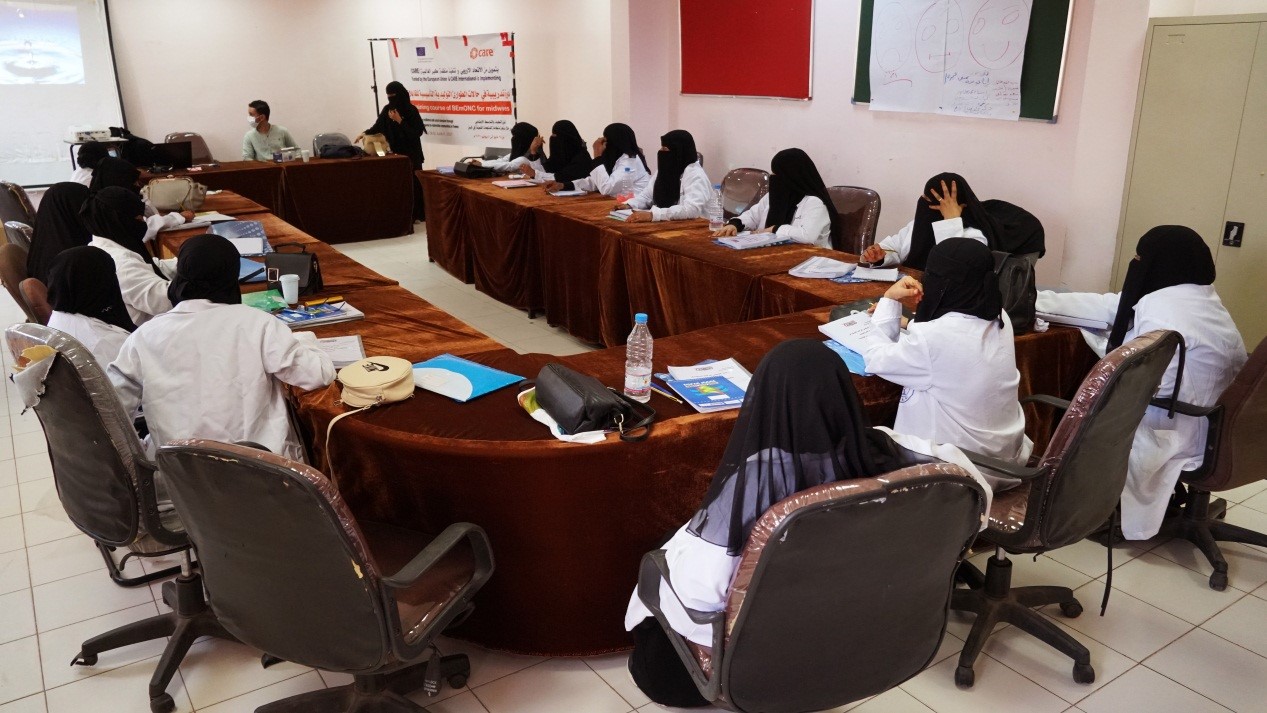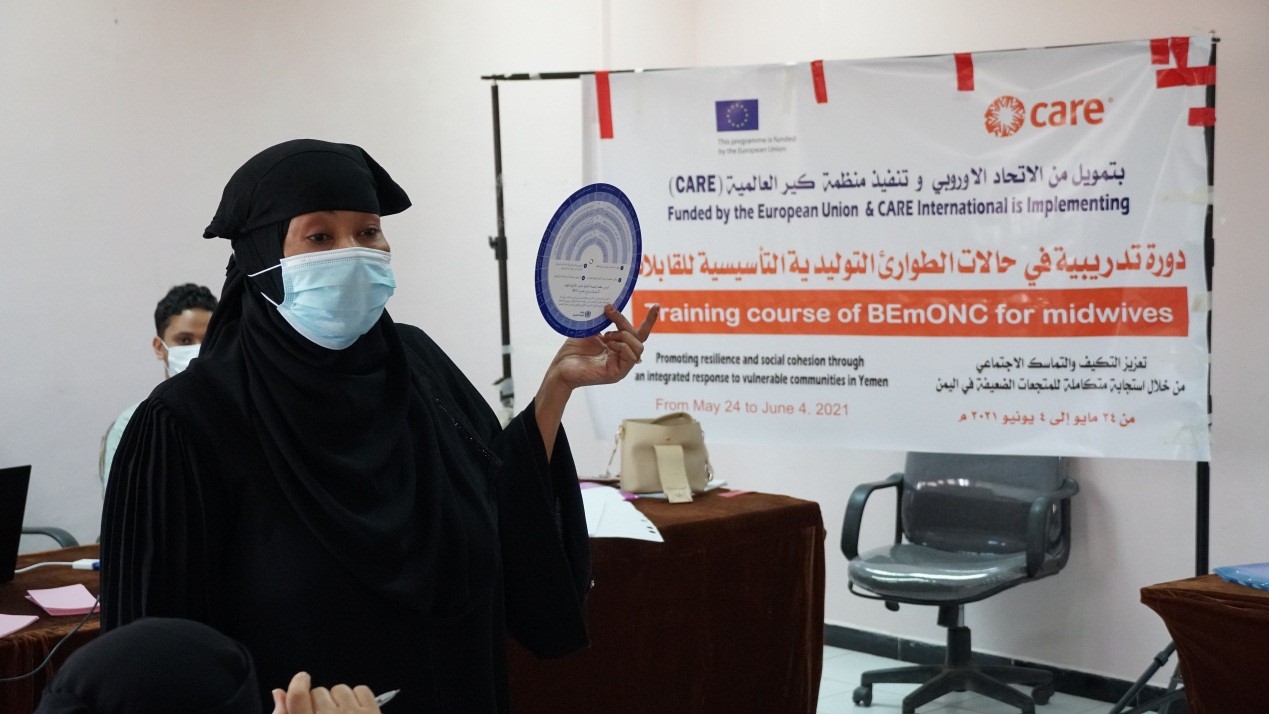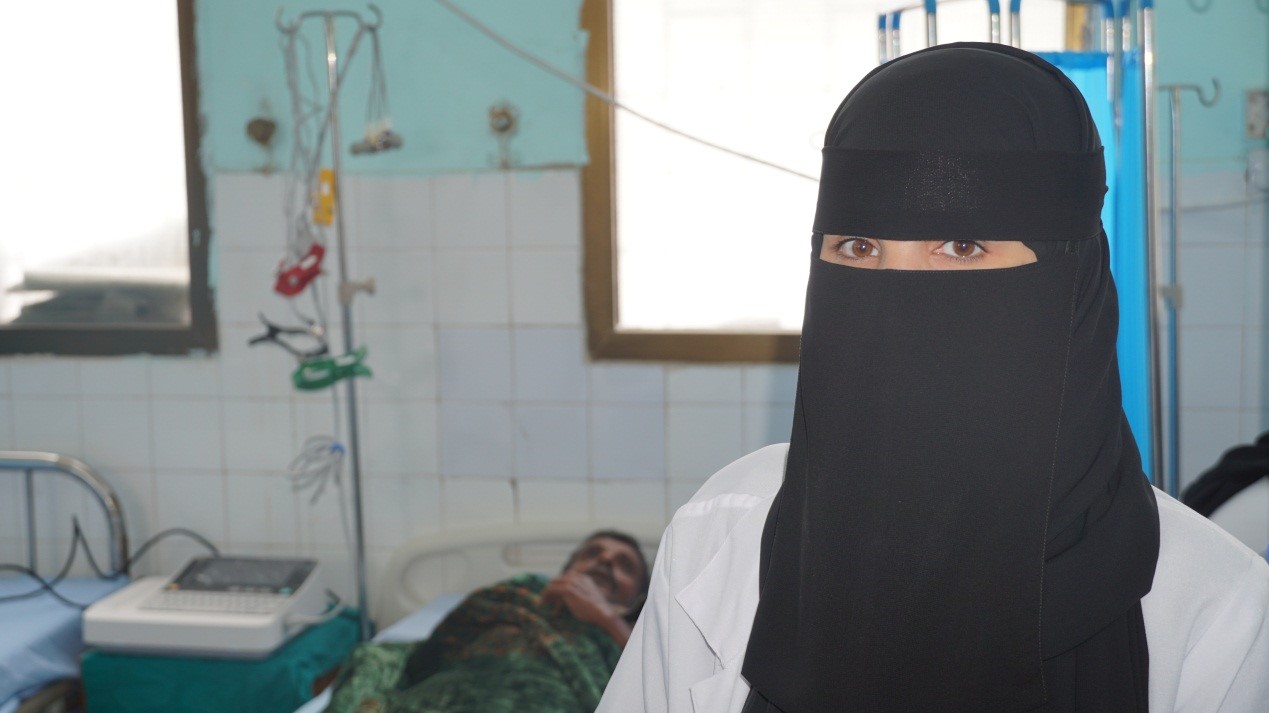Adequate access to reproductive health services can mean the difference between life and death for mothers and their babies. As often in crisis, women and children pay the heaviest price. In war-torn Yemen, an estimated 5 million women and girls of childbearing age, and 1.7 million pregnant and breastfeeding women, have limited or no access to reproductive health services, including antenatal care, safe delivery, postnatal care and emergency obstetric and new-born care.
Even before the conflict, Yemen recorded one of the highest maternal mortality ratios in the region and has been placed among the high alert countries for maternal mortality in the Fragile Countries Index. Decades of underdevelopment and years of intense fighting have left only half of all health facilities fully functional. Moreover, the COVID-19 pandemic has aggravated the situation, with roughly 15 percent of the functioning health systems repurposed for COVID-19 treatment.
Midwives are the key to reduce maternal and neonatal mortality
In Yemen’s rural areas, many women and their babies often cannot make the long, hard journeys to health facilities. Due to a lack of nearby health facilities, paved roads, transportation and medication costs, pregnant women often have to give birth at home, which can lead to complications. Midwifery is a key to reduce maternal and neonatal mortality in hard-to-reach areas. An empowered midwife can save two lives at a time; the mother and her baby. They help women who cannot seek medical care at health facilities to give birth to healthy babies safely at home.
“Many pregnant women who come to my clinic show malnutrition symptoms,” said Osan Ali, a midwife from Tuban, a district in Lahj governorate. “Malnutrition can cause great harm, and even death, to both mothers and their babies. People are no longer able to get enough nutritious food. The difficulty of accessing reproductive health services poses the greatest threat to women’s health.”




